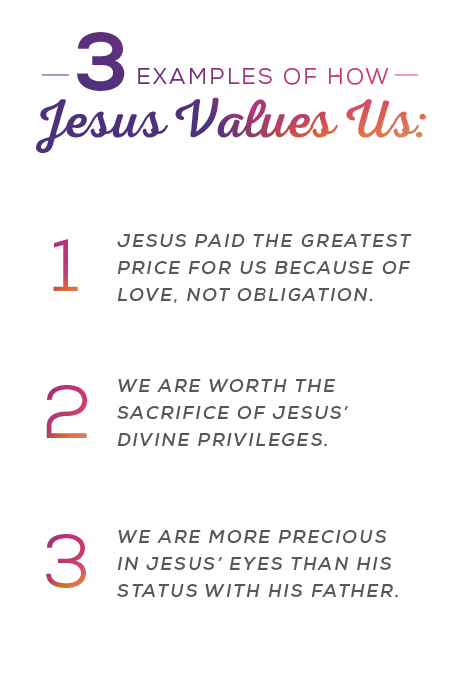
In April 2011, an anonymous collector purchased a 1909 Honus Wagner baseball card for 2.8 million dollars.
The least expensive Picasso painting sold in November 1999 at Christie’s for 45.1 million dollars.
In October 2018, a 73-year-old bottle of French burgundy sold for $558,000.
The vast majority of us don’t have the money to make such purchases. Even if we did, most of us would say we wouldn’t spend money like that.
I wonder - is that because we don’t value those items the way those collectors do?
We Pay for What We Value
Margaret Wolfe Hungerford famously said, “Beauty lies in the eye of the beholder.”
Many of us have heard this quote previously. I believe we could replace the word “value” for the word beauty and it would remain true. Value is in the eye of the beholder, too.
If we valued those items the way those collectors did, we’d be willing to pay a great price to gain them.
We all value things differently. What others would pay a great price for, we would pay little to nothing. It’s easy to know how much someone values something - simply look at how much they’re willing to pay to get it or keep it.
As ridiculous as it seems to pay half a million for less than a liter of wine or millions for a baseball card, those aren’t the first or the greatest examples of a ridiculous price.
A Ridiculous Sacrifice
The price Jesus paid on the cross seems equally ridiculous.
In Romans 5, the Apostle Paul writes, “Now, most people would not be willing to die for an upright person, though someone might perhaps be willing to die for a person who is especially good. But God showed his great love for us by sending Christ to die for us while we were still sinners.”
Paul seems to think only a few people would die for a good person, yet none would die for a bad one. This perspective shines a different light on what Jesus did for us. He paid the ultimate price for each of us, even when that price seemed even more ridiculous than a 3-million-dollar baseball card.
Our identity is often shaped by our view of ourselves or what we’ve seen in the minds of others when we come to their minds. But when we shift from building our identity on what we see and what others say, to what God says and what God has done, our worth and value grow astronomically.
According to the Scriptures, we are worth the death of Jesus. We are worth that sacrifice on our worst day, not on our best day. We are worth the greatest price when we are at our lowest point.
As crazy as that looks from the outside, that’s how much God values each of us.
You Are Worth the Price and Much More!
The Scriptures include countless examples of our worth in God’s eyes. Here are three more examples of how we are valued at such a high price by God!
1. Jesus paid the greatest price for us because of love, not obligation.
In Ephesians 2, Paul writes, “But God is so rich in mercy, and he loved us so much, that even though we were dead because of our sins, he gave us life when he raised Christ from the dead. (It is only by God’s grace that you have been saved!)”
Too often, we make the mistake of viewing Jesus’ sacrifice on the cross through the lens of obligation, not love. The Scriptures tell us it was a rich mercy and a great love that led Jesus to pay the price so we might live eternally and abundantly with Him.
2. We are worth the sacrifice of Jesus’ divine privileges.
Bible scholars are uncertain if Philippians 2:5-11 became one of the first hymns of the church or if Paul quoted the hymn when he wrote Philippians 2. Either way, those verses tell us we are worth the sacrifice of Jesus’ greatest privileges. “He gave up his divine privileges; he took the humble position of a slave and was born as a human being. When he appeared in human form, he humbled himself in obedience to God and died a criminal’s death on a cross.”
Once you have a privilege, it’s hard to abandon it. That is, unless you encounter something you value more. We are worth that much to Jesus!
3. We are more precious in Jesus’s eyes than His status with His Father.
In that same passage, Paul also said, “Though He was God, He (Jesus) did not think of equality with God as something to cling to.”
The source of Jesus’ privileges was His incredible status and position. As valuable as that status and position was to Jesus, we are worth more!

Exchanging Your Perspective for God's
One of the hardest parts of being a human and follower of Jesus is trusting when you don’t understand. As the prophet writes in Isaiah, God’s ways are not our ways. God’s thoughts are not our thoughts.
God’s ways aren’t my ways. God’s thoughts aren’t my thoughts.
And God’s view isn’t mine. I wish I saw what God did; if I did, maybe life would make more sense.
Years ago, a friend told me, “If you saw what God saw, then you’d do what God does.”
Claiming and developing our God-given identity includes exchanging our perspective for God's. When we begin to see ourselves the way He does, we appreciate His actions as statements of our worth and value.
While he was teaching one day, Jesus said, “Look at the birds. They don’t plant or harvest or store food in barns, for your heavenly Father feeds them. And aren’t you far more valuable to him than they are?”
What if every time you saw a bird, it triggered a reminder that you’re “far more valuable” to God?
Because you are!
Scott Savage is a pastor and a writer who believes he has the best last name ever. He leads Cornerstone Church in Prescott, Arizona. Scott is married to Dani and they are the parents of three “little savages.” He is the creator of the Free to Forgive course and you can read more of his writing at scottsavagelive.com.






